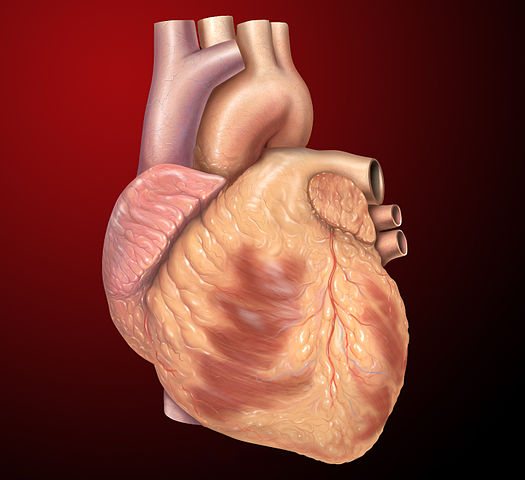This post is also available in Dutch .
Nowadays, we hear a lot about how the brain influences our behavior. But the brain does not do this alone: it receives help from other organs such as the heart.

Image by OpenStax College – Anatomy & Physiology, Connexions Web site. –wikipedia commons. Autonomic Innervations of the heart.
How the heart is regulated by the brain
The heart is innervated, meaning controlled, by the brain, namely the autonomic nervous system. It exerts its regulation via two branches, one from the sympathetic and the other from the parasympathetic system, which directly influence (the timing of) heart beats. The sympathetic system is associated with energy mobilization, so when we need energy for something active, e.g., sports, it increases heart rate. The parasympathetic system is associated with restorative functions and decreased heart rate, e.g., during sleep.
The heart: from pumping blood to influencing emotions
The basic function of our heart is to pump the blood throughout our body in order to transport oxygen and nutrients to our organs. In addition to this, our heart influences our emotions. From an evolutionary standpoint, emotions do not only refer to states like happiness, sadness, fear, etc. but they represent an internal state that results from the interactions of a person with the outside world. For example, imagine how you feel when a valuable person approaches you or how you feel when a threat comes closer (maybe your heart rate goes up). This internal state, which we describe as an emotion, enables us to act adaptively in the situation at hand. And this is exactly where the heart comes into play. For example, we know that if a threat approaches, our heart slows down until the moment when we need to execute an action. At that point, our heart needs to accelerate again to mobilize our body for a fight-or-flight action.
Not all hearts react the same
The capacity of the heart to react to different environmental demands varies across people. For instance, one person’s heart may react quickly and/or strongly to different experiences. Yet another person’s heart may react rather rigidly to new challenges. Research has shown that individuals whose hearts are more responsive to situations seem to better control their emotions. One explanation for this is that they adapt more flexibly to different situations and are therefore better able to cope with different environmental challenges. In contrast, not reacting dynamically enough to different challenges is associated with anxiety, post-traumatic stress, depression, or other emotional problems. Scientifically, we call this responsiveness of the heart heart rate variability.
You can train your heart
Some studies have shown that training heart rate variability can help in the treatment of emotional disorders such as depression. Training your heart is possible with biofeedback. Interested in what biofeedback is? Then read the next blog, coming up soon.
Written by Mahur. Edited by Lara.
